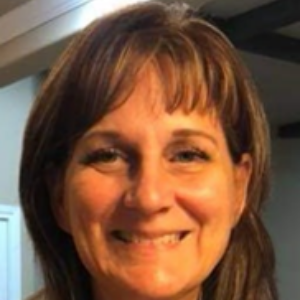Title: It’s okay for healthcare providers to say “i’m not okay
Abstract:
The emotional, psychological and physical toll on clinicians is a significant aspect of their work while caring for patients amid high-stress situations. This problem affects clinicians regardless of background, race, gender, religious affiliation, years of clinical practice or areas of clinical practice. It affects clinicians at the bedside, those in leadership, physicians, nurse practitioners, educators and yes, even nursing and medical students. Peer Support reduces clinician burnout by providing safe platforms for clinicians to connect and share experiences. This, in turn, optimizes patient care and improves patient outcomes.
Global nursing shortages intensify with clinician burnout, causing anxiety, compassion fatigue, and Post-Traumatic Stress Disorder. This can be attributed to a noticeable trend in our current patient population: they are becoming sicker with more co-morbidities. This increased complexity places them at a higher risk for adverse patient outcomes to occur. Healthcare providers caring for these patients bear the burden of not only caring for higher acuity patients, but in struggling to cope with the detrimental effects when something goes wrong. Evidence supports the premise that adverse patient outcomes impact clinician's physical, emotional, and psychological well-being.
The COVID pandemic has only served to both highlight and signicantly increase those negative effects such as burnout, anxiety, compassion fatigue, and PTSD that has continued long past the end of the pandemic. In 2016, Johns Hopkins declared that medical errors were the third leading cause of death in the US. If each medical error involves one or more HCPs, almost half of clinicians could be negatively impacted by an adverse event (AE) in their career. Dr. Albert Wu coined the term “second victim” to describe the trauma experienced by HCPs when an unanticipated event occurs, which can result in psychological and physical distress.
The definition soon expanded to include those involved in medical errors and other unanticipated events involving patient injury leading to psychological trauma, feelings of personal responsibility, or questioning of their clinical abilities. The extent of trauma depends on the degree of patient harm, type of event, age of the patient, and investigative process. Although each HCP may experience an unanticipated event, the people involved in or witnessing adverse events can experience disruption in their professional and personal lives. This suffering can affect their quality of life, work performance, and how they provide care to other patients, placing subsequent patients at risk for increased medical errors as HCPs become less confident in their ability to provide care.
There are few people HCPs can turn to for emotional or spiritual support after an adverse patient event. Reasons include patient privacy concerns, the stigma of weakness associated with seeking help, and many laypeople do not understand the experience. When coping with a traumatic AE, most instinctively turn to their peers who genuinely understand. This confidante could be a nurse or other HCP they know and trust. This sharing of events with their peers allows healing to begin. To this end, receiving just-in-time support from a peer knowledgeable regarding the second victim phenomenon and emotional support would be beneficial.
After almost three decades of experiencing adverse patient events and attempting to cope with the detrimental effects it caused both personally and to peers, it became a mission and passion to help clinicians thrive instead of just survive. The intent is to help clinicians overcome adverse events, become resilient, and flourish in their professions.
Being a nurse educator has only intensified the passion to ensure nurses continue in our noble profession. Nursing students experience their own unique stressors on their journey to becoming nurses. Those stressors, if not addressed, only intensify and are compounded once they enter the nursing workforce. Many do not feel prepared or are “blindsided” by the reality of what is expected of the nursing profession caring for patients at the bedside. The end result is that many new nurses are leaving the profession, compounding the global nursing shortage.
Ample literature exists for peer support effectiveness in cost-benefit analysis, employee retention and resiliency. Implementing evidence-based strategies like Peer Support is vital for optimizing health and wellness by providing timely intervention in a safe environment enabling staff to express emotions openly, providing coping strategies, building resilience and reducing mental health stigmas.
This program stemmed from a pre-survey in L&D (n=44) in 2019, where 37 staff experienced adverse events impacting performance, with lasting effects for 30. The initiative began with pre-data from Labor and Delivery, garnering support from the hospital CNO. Nurses, trained after a "train-the-trainer" course, launched a successful pilot in Women’s Services (4 units) in 2019. Expansion to the oncology unit and chaplains occurred in 2020, utilizing encounter forms for data. Peer Support training expansion to the ED, IMU, and ICU began preCOVID but faced challenges during the pandemic. With backing from the Interdisciplinary Shared Governance Staff Experience Council and the Peer Support Steering Committee, a 2024 revitalization plan includes using the SVEST tool for pre-/post-data and collaborating with RISE (Johns Hopkins) for training, sustainability and implementation of PRAISE UP both at Houston Methodist Willowbrook Hospital and the entire Houston Methodist System.
Providing real-time emotional support following an adverse event has been associated with enhanced emotional wellbeing and recovery of second victims. Unfortunately, other than employee assistance programs and chaplain referrals, many HCPs do not have access to real-time emotional support after an unanticipated event.
Evidence advocates prioritizing clinical health and wellness for professional development. Peer Support, an evidence-based beacon of hope, empowers clinicians to enhance themselves and contribute to improved patient safety and outcomes.
Audience Take Away Notes:
• Understand the Second Victim phenomenon and the detrimental effects of adverse patient events for HCPs
• Review statistic/data regarding detrimental effects of AE on HCPs
• Describe stages of recovery/trajectory of Second Victims
• Evaluate the positive impact of peer support on HCPs health and well-being
• Describe process of implanting Peer Support Program in a Hospital System
• Discuss various coping strategies available for clinicians



